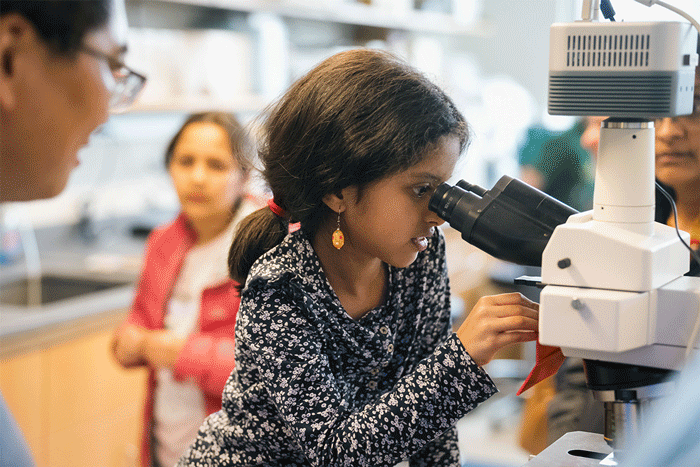The Arthur L. Irving Institute for Energy and Society has awarded its inaugural round of one-year seed grants to nine energy-related projects proposed by faculty and students. Topics range from the transformation of energy systems in New Hampshire and Greenland to novel technologies that enable more efficient motors.
“What’s amazing about the proposals is their broad geographic reach, combined with very tangible connections to people’s lives, says Stephen Doig ’82, the Irving Institute’s new managing director of research.
Before joining the institute, Doig was on the leadership team at the Rocky Mountain Institute (RMI), where he directed research into low-carbon strategies for states and utilities. He’s led teams in building carbon-fiber car components and low-cost solar systems. Doig also established RMI’s program in the Caribbean Islands and helped bring sustainable energy for economic development to African nations.
One of Irving’s newly funded projects, proposed by Lisa Adams, associate dean for global health and an associate professor of medicine at the Geisel School of Medicine, and Anne Sosin, global health initiative program director at the John Sloan Dickey Center for International Understanding, maps critical linkages between health and energy across a network of Dartmouth’s global partnerships.
“For example, they’re looking at telemedicine in Peru, and they’re looking at chronic disease diagnostics in sub-Saharan Africa,” says Doig. He says he got a firsthand glimpse of the nexus between health care and energy a few years ago, when he visited a rural health care clinic in Rwanda. “This place served a hundred patients a day and had no electricity,” he said. “They had a generator, but no fuel for it. They couldn’t even sterilize water.”
As the institute’s managing director, Doig says his aim is to help faculty and students focus their interdisciplinary research on thematic areas that tap into strengths already present at Dartmouth. “One potential area is the intersection of energy and health care,” he says. “Another is the link to cold climate regions. A third interest might be in energy policy and rural regions of the United States.”
In addition to Adams and Sosin, the grant recipients are:
- Mary Albert, professor of engineering at Thayer School of Engineering, for partnering with citizens of Qaanaaq, Greenland, on promoting Sustainable Energy for Remote and Underserved Communities
- Ian Baker, the Sherman Fairchild Professor of Engineering at Thayer School of Engineering, for developing High Performance Nickel-Iron Permanent Magnetics for Electric Motors and Turbines
- Junyang Cui ’21 and Harish Tekriwal ’21, for “Constructing Effective Demand Response Programs in New Hampshire’s Electric Market”
- Amro Farid, associate professor of engineering at Thayer School of Engineering, whose team will develop for Lebanon, N.H., a Transactive Energy Blockchain Prototype to enhance the sustainability of the city’s electric grid.
- David Lutz, research assistant professor of environmental studies, for Analyzing the Social and Environmental Impacts of Forest-Based Bioenergy in New Hampshire
- Katherine Mirica, assistant professor of chemistry, and Weiyang (Fiona) Li, the William P. Harris Development Assistant Professor of Engineering at Thayer School of Engineering, for Powering the Carbon-Neutral Energy Cycle: Energy-Efficient Catalysts for CO2 Reduction
- Laura Ogden, associate professor of anthropology, for a Survey of Energy and Indigenous Environmental Studies in the Americas
- Christopher Sneddon, professor of geography and environmental studies, whose team will explore Hydropower Development and Knowledge Controversies in Transboundary Rivers
Doig says the selection process was competitive, and he is pleased that two students, Junyang Cui ’21 and Harish Tekriwal ’21, are in the first funding cohort.
“They’ve taken advantage of a job experience they had last year, at the Federal Energy Regulatory Commission, and they’ve converted it into a new piece of work for the state they are currently living in, to help reduce the overall cast of the energy system and to improve reliability and robustness on peak demand days,” he says.
The Institute will issue another call for research proposals in about two weeks, aiming to make the next round of awards in June.
Charlotte Albright can be reached at charlotte.e.albright@dartmouth.edu.

